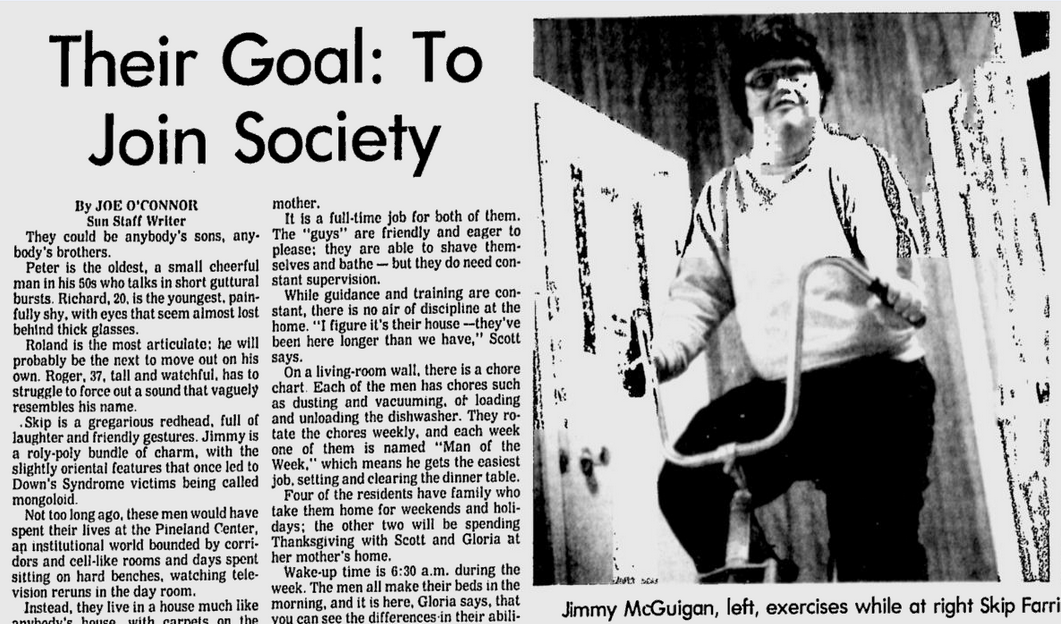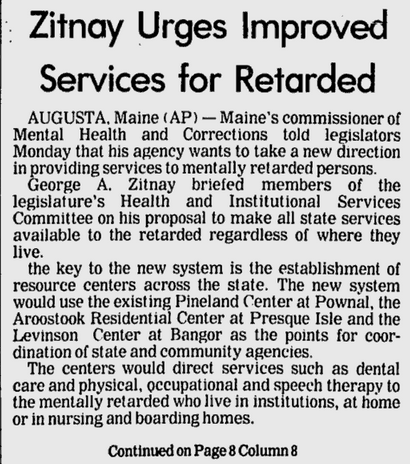In February of 2000, in response to the federal Olmstead decision requiring services for people with developmental disabilities in the least restrictive environment possible, the Commissioner of the Department of Human Services created the Workgroup for Community-Based Living.
Governor Brennan appointed a “Task Force on Long Term Care for Adults” to study the systems of long term care as they stood and bring back policy recommendations to the administration.

Neville Woodruff, the lawyer who represented Pineland residents in the lawsuit, threatened new suits against Pineland saying, “They are very far behind in three major areas - staffing, quality of programs, and staff training.” Court Master Gregory was critical of the lack of improvements at Pineland as well, saying residents were “still just being kept. Life for them is purposeless."

The years while the lawsuit worked its way through the courts were marked by much upheaval and many changes at Pineland. Many policies were beginning to be implemented in order to give Pineland residents more autonomy, choice, and opportunities.
The Maine Legislature, as such bodies are wont to do when faced with intractable systemic problems, on the recommendation of the Legislative Research Committee in 1955 created a Governor’s advisory committee to study the issue - the Maine Committee on Problems of the Mentally Retarded.
The recommendation of the Committee was unequivocal: “After full investigation of this subject, we most earnestly recommend to the legislature of Maine, that humanity demands at our hands the location of such a home for this unfortunate class: that economy and the protection of society demand it.”
